Gnostic Studies Collection (5 vols.)
Digital Logos Edition
Overview
In 1945, a collection ancient codices were found in upper Egypt. Referred to as the Nag Hammandi Scriptures, this important discovery included many primary Gnostic documents—texts that were once believed to have been completely destroyed due to their unorthodox character. These works offer a window into the culture, atmosphere, and literary traditions of the ancient Gnostic movement.
This collection includes modern translations of Gnostic texts: The Exegesis on the Soul, The Hymn of the Pearl, the Gospel of Philip, the Gospel of Thomas, and the Secret Book of John. Each volume includes commentary, offering analysis and historical context. Learn about the interaction between Greek philosophical thought and early Christianity. Understand the theological nuances of the ancient Gnostic movements. Gain insight into early church history, ancient Judaism, and the Platonic traditions. This collection will be valuable to anyone interested in the origins and impacts of the Gnostic texts.
In the Logos edition, these volumes are enhanced by amazing functionality. Important terms link to dictionaries, encyclopedias, and a wealth of other resources in your digital library. Perform powerful searches to find exactly what you’re looking for. Take the discussion with you using tablet and mobile apps. With Logos Bible Software, the most efficient and comprehensive research tools are in one place, so you get the most out of your study.

Key Features
- Presents modern translations of several Gnostic texts
- Includes commentary, offering analysis and historical context
- Offers insight into the roots of ancient Gnostic movements
Product Details
- Title: Gnostic Studies Collection
- Series: SkyLight Illuminations
- Publisher: SkyLight Paths Publishing
- Volumes: 5
- Pages: 912
- Resource Type: Commentaries
- Topic: Gnostic Groups
Individual Titles
- Gnostic Writings on the Soul: Annotated & Explained translated by Andrew Phillip Smith
- The Gospel of Philip: Annotated & Explained translated by Andrew Phillip Smith
- The Gospel of Thomas: Annotated & Explained translated by Stevan Davies
- The Secret Book of John: The Gnostic Gospel translated by Stevan Davies
- The Lost Sayings of Jesus: Teachings from Ancient Christian, Jewish, Gnostic and Islamic Sources translated by Andrew Phillip Smith
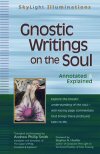
Two ancient Gnostic texts—The Exegesis on the Soul and The Hymn of the Pearl—explore the concept of the soul. In addition to modern translations of these ancient texts, Andrew Philip Smith provides commentary, offering analysis and historical context.
The Exegesis on the Soul depicts the soul as a feminine figure who has fallen into the corrupted world and must find her way back to the Divine—a story of struggle and redemption.
The Hymn of the Pearl is an allegorical story about a prince sent to retrieve a precious pearl but who soon forgets his purpose and falls asleep. It is a tale of the importance of remembering one’s identity and calling.
Andrew Phillip Smith (1966–) attended the University College of Swansea. He is also the author of A Dictionary of Gnosticism, The Gnostics: History, Tradition, Scriptures, Influence, and editor of The Gnostic.
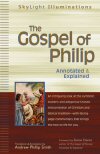
The Gospel of Philip draws on ancient imagery—the natural world, the relationships between women, men, and family, the ancient distinctions between lord and servants, free people and slaves, and pagans, Jews, and Christians. Andrew Phillip Smith provides a fresh translation of the second-century Coptic text. In his commentary, he also unravels the discourses, parables, and symbolism, exploring the meaning of the text, as well as how it parallels the writings of Paul.
Andrew Phillip Smith (1966–) attended the University College of Swansea. He is also the author of A Dictionary of Gnosticism, The Gnostics: History, Tradition, Scriptures, Influence, and editor of The Gnostic.
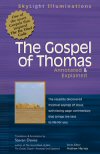
Believed to have been written at the same time as the canonical Gospels, the Gospel of Thomas portrays Jesus as a wise sage. The text also focuses on the present, illustrating the Kingdom of God as being here and now, rather than a future promise.
Stevan Davies is professor of religious studies at Misericordia University. He is also the author of The Revolt of the Widows: The Social World of the Apocryphal Acts.
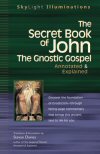
This central myth of Gnosticism tells a story of God falling from perfect Oneness to imprisonment in the material world, and how by knowing one’s divine origins, God’s descent can be reversed. The Secret Book of John: The Gnostic Gospel—Annotated & Explained discusses the principal themes, historical foundation, and spiritual contexts of this Gnostic teaching.
Stevan Davies is professor of religious studies at Misericordia University. He is also the author of The Revolt of the Widows: The Social World of the Apocryphal Acts.
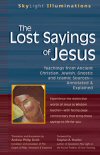
The Lost Sayings of Jesus: Teachings from Ancient Christian, Jewish, Gnostic and Islamic Sources
- Translator: Andrew Phillip Smith
- Annotator: Andrew Phillip Smith
- Series: SkyLight Illuminations
- Publisher: SkyLight Paths Publishing
- Publication Date: 2005
- Pages: 240
This volume compiles sayings, often ascribed to Jesus, from diverse resources. Sources include writings by early Church Fathers, the Qur’an, and fragments of Gnostic gospels. Examples of the sayings include “I am hope for the hopeless,” “Love those who hate you and you will not have an enemy,” and “Give no opportunity to the evil one”.
Andrew Phillip Smith (1966–) attended the University College of Swansea. He is also the author of A Dictionary of Gnosticism, The Gnostics: History, Tradition, Scriptures, Influence, and editor of The Gnostic.
This title is included in the following collections
You can save when you purchase this product as part of a collection.
SkyLight Paths Illuminations S...
$549.99$329.99